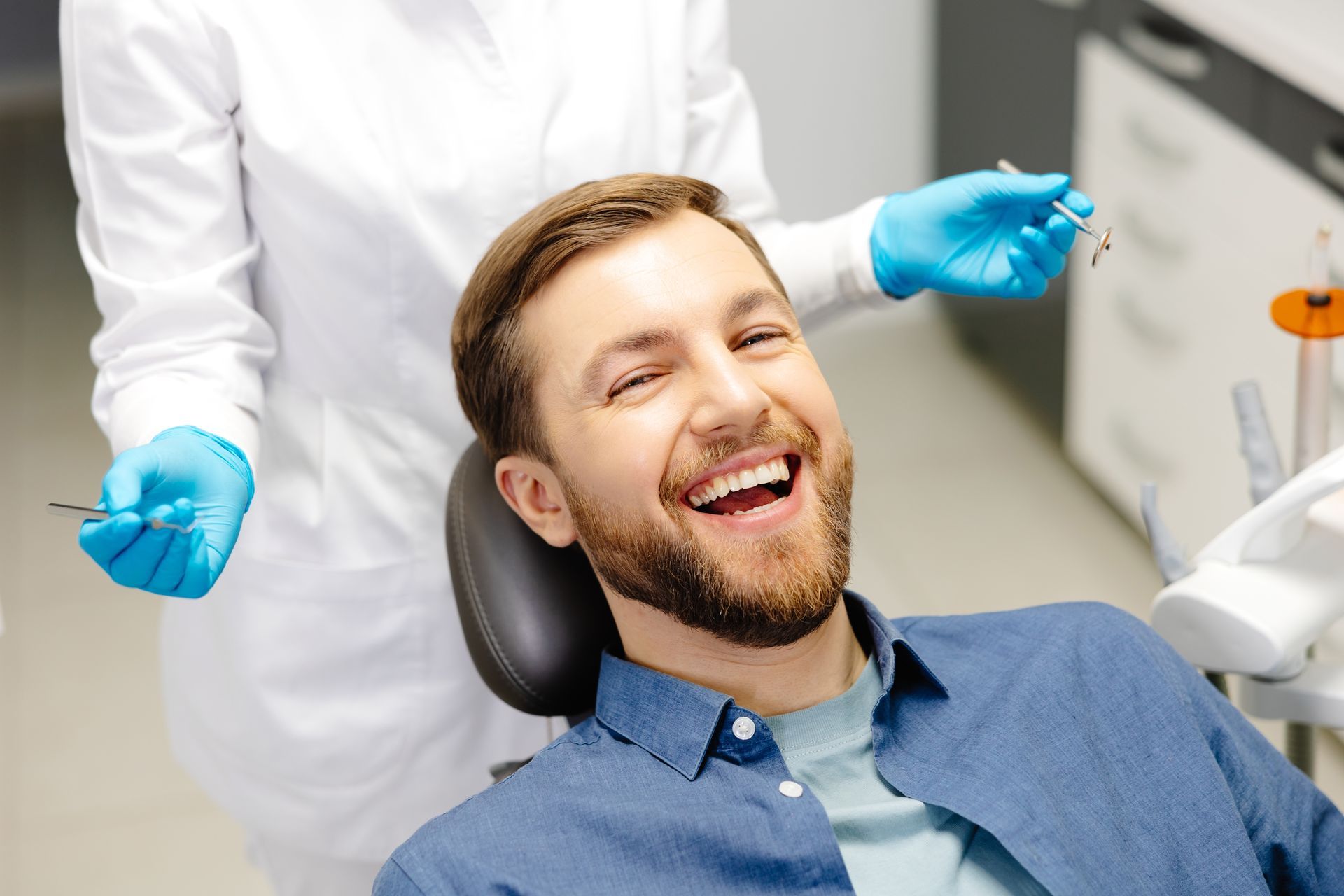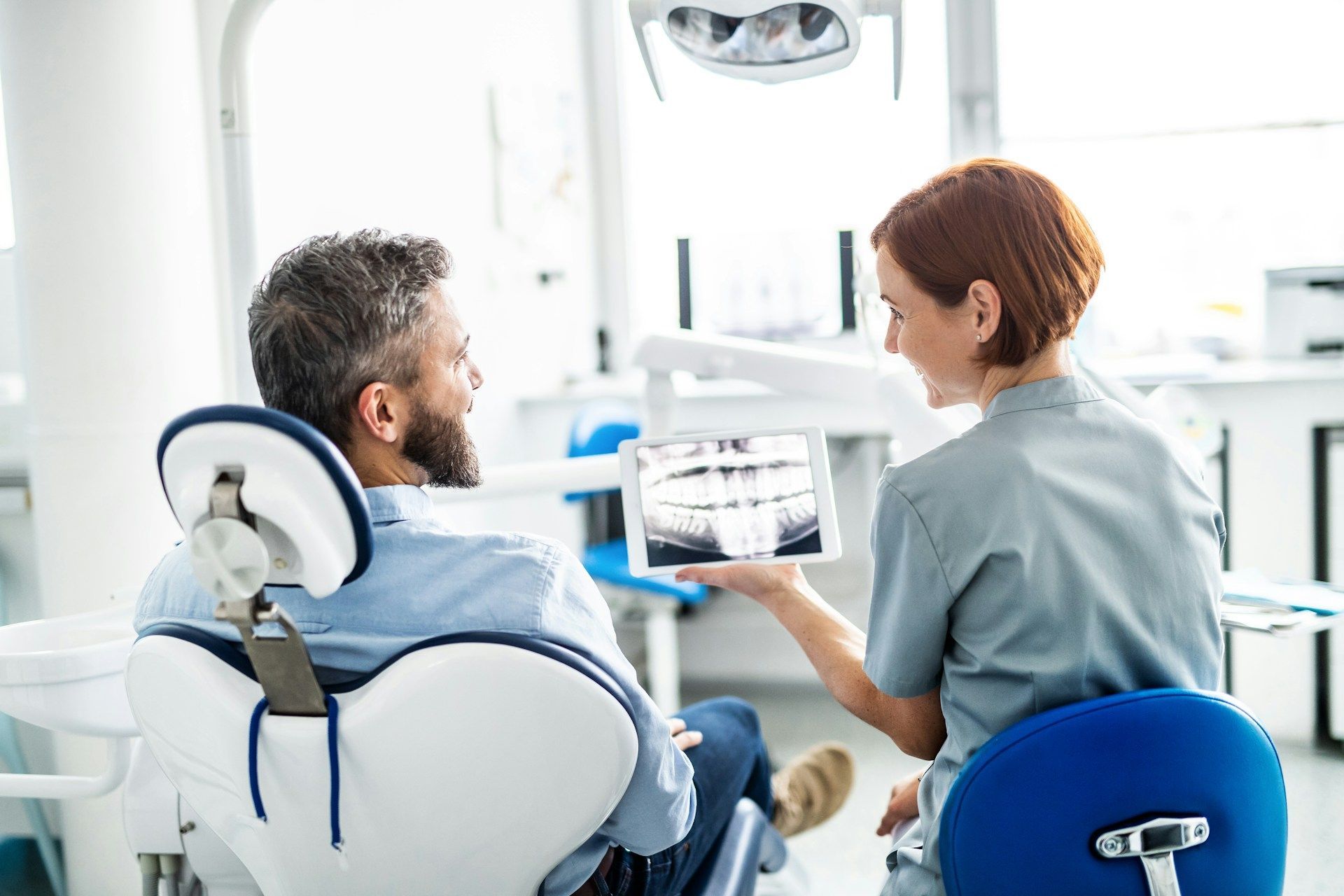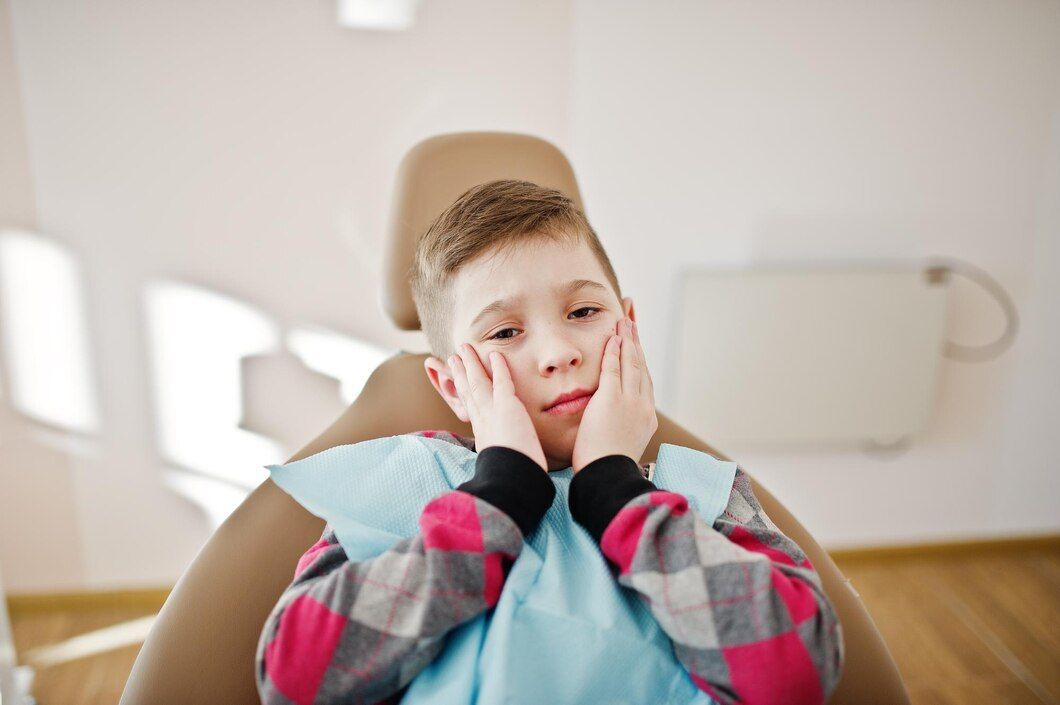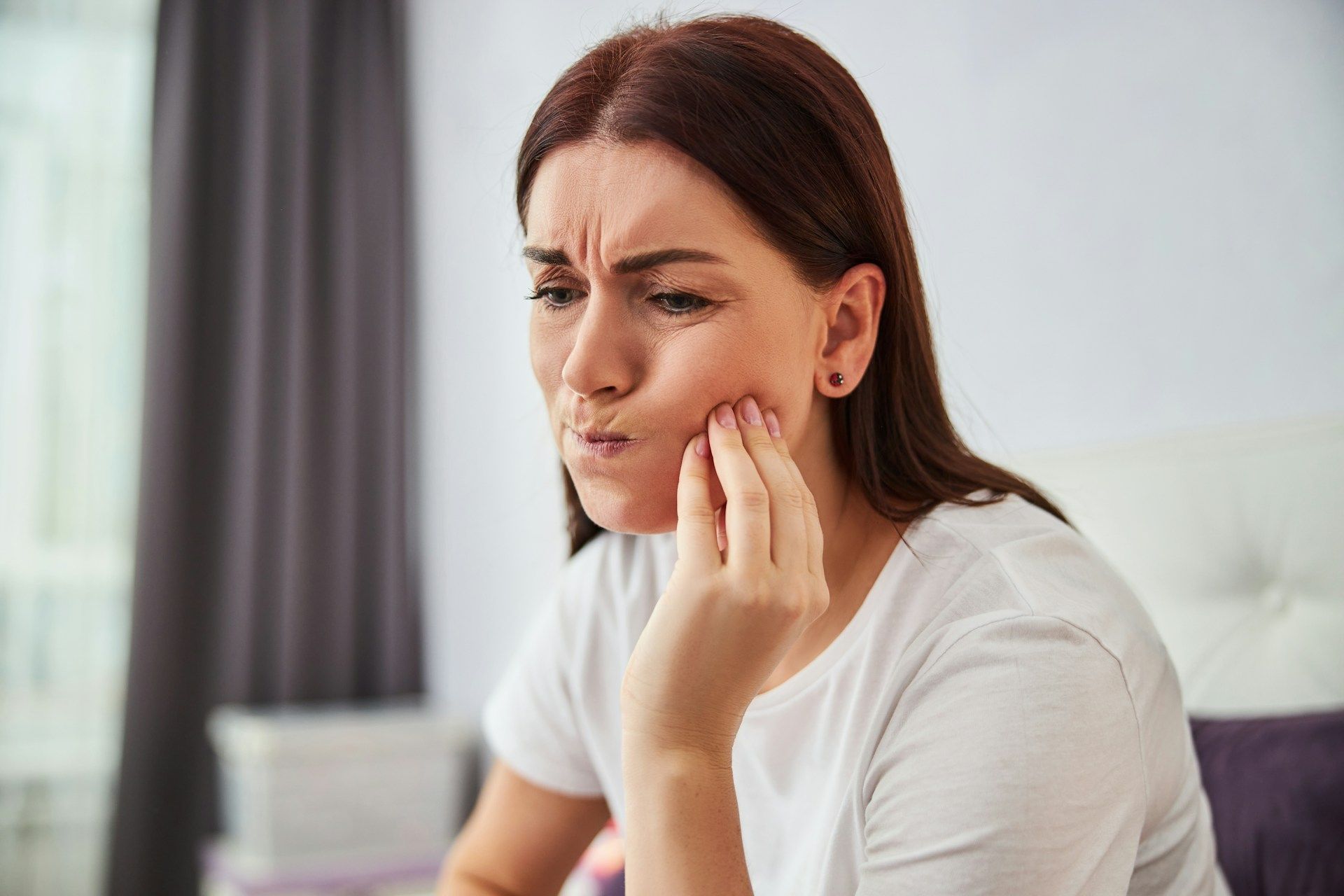By Website Team
•
April 15, 2025
Have you ever found yourself clutching your cheek late at night, wishing you had an immediate solution for that throbbing toothache? Dental emergencies can strike at the most inconvenient times, leaving many people feeling worried and uncertain about the next steps. Knowing how to respond quickly and effectively can make a huge difference in preserving both comfort and dental health. This blog will explore common dental emergencies and how to handle them, answer the question “how do I know if this is a dental emergency,” and offer actionable tips on what to do if my tooth is in pain . Understanding the Basics of Dental Emergencies Dental emergencies come in different forms, and they can be more common than you might think. For instance, you might suddenly crack a tooth while eating something unexpectedly hard, or wake up one morning with severe swelling in your jaw. Understanding the types of emergencies will help you respond without hesitation if they occur. Common Types of Dental Emergencies Severe Toothache: Sudden, sharp pain or persistent throbbing can be a sign that the inner pulp of your tooth is infected or inflamed. Chipped or Broken Tooth: Even a small fracture can expose the tooth’s sensitive layers, increasing the risk of infection or further damage. Knocked-Out Tooth: Accidents or sports-related injuries can cause a tooth to get dislodged. Prompt action is critical to save the tooth. Abscess: A pocket of pus caused by bacterial infection. It often comes with swelling, redness, and discomfort that may radiate beyond the immediate area. Lost Filling or Crown: When fillings or crowns dislodge, they expose the tooth underneath, leading to sensitivity and a higher chance of infection. So, how do I know if this is a dental emergency? A good rule of thumb is that if the pain is intense, if you notice excessive bleeding, or if the tooth has been dislodged, you should seek professional help as soon as possible. Dental issues that involve visible swelling, high levels of discomfort, or signs of infection (such as fever or persistent pain) should never be put on hold. Handling Pain and Discomfort at Home Before you can get professional care, you might need quick solutions for what to do if my tooth is in pain . While it’s not recommended to self-treat serious dental conditions for extended periods, taking initial steps can keep you comfortable until you can visit a dentist. Rinse Gently With Warm Salt Water: This is a classic remedy that helps reduce inflammation and flush out debris that may be aggravating the area. Apply a Cold Compress: A cold compress can help reduce swelling, especially if the pain is due to an injury or trauma. Use Over-the-Counter Pain Relievers: Medications like ibuprofen or acetaminophen can help alleviate discomfort but should be taken according to the instructions on the label. Avoid Hard or Chewy Foods: If a tooth is cracked or sore, stick to softer foods and liquids to prevent worsening the condition. If your discomfort does not improve or continues to intensify, it’s time to get professional help. Never underestimate what might appear to be a minor problem. A small issue could quickly escalate if not properly addressed. When to Contact a Professional In many dental emergencies, timing is everything. Whether you’ve lost a tooth or have a cracked crown, quick action can mean the difference between saving the tooth and needing more extensive intervention later on. Here are specific situations in which immediate professional care is critical: Knocked-Out Tooth: Place the tooth in a container of milk or a tooth-preserving solution to keep its root cells alive. Seek professional assistance right away. Uncontrolled Bleeding: If bleeding is excessive and does not subside with gentle pressure, call a dental professional immediately. Intense Pain That Persists: Pain that doesn’t improve with basic home measures could indicate a more serious issue, such as an abscess or severe infection. Visible Swelling or Pus: These are signs of infection that need prompt evaluation and treatment. At Wow Dental in Detroit, Michigan, patients have access to experienced professionals ready to handle urgent dental needs. The office, located at 18525 Moross Rd, Detroit, Michigan, 48224, features a team of well-trained experts, including Dr. Karana, Dr. Hanna, and Dr. Wang. If you need assistance right away, you can call 313-371-9880 to schedule an appointment for immediate care. Benefits of Professional Care for Dental Emergencies Seeking prompt professional care can prevent complications and save you time, money, and discomfort. According to professional guidelines from dental associations, timely intervention can preserve tooth structure, reduce infection risk, and maintain the overall health of your mouth. Below are a few specific benefits: Accurate Diagnosis and Rapid Treatment Dentists have the tools and expertise to identify the root cause of your dental emergency. Early diagnosis increases the chances of effective treatments, whether it’s a root canal procedure, tooth extraction, or a simple filling to address an urgent problem. Pain and Infection Management Professional care ensures you receive the appropriate medication or procedure to reduce pain and combat infection. This can be especially important for abscesses or severe injuries, which may worsen quickly if left untreated. Customized Follow-Up Care After the initial treatment, you’ll receive personalized recommendations, whether that involves a dental crown, further cleanings, or at-home instructions to ensure complete recovery. Professional follow-up is critical for long-term oral health. Protection Against Long-Term Issues Many dental emergencies can lead to larger complications if they are ignored. Expert attention helps prevent conditions like bone loss, extensive decay, or widespread infection from taking hold. Practical Tips for Prevention While it’s impossible to avoid every accident, there are ways to lower the likelihood of a dental emergency: Wear a Mouthguard: If you play contact sports or grind your teeth at night, a mouthguard can protect against chipping or fractures. Maintain Regular Checkups: Routine dental visits help catch minor issues before they become emergencies. Practice Good Oral Hygiene: Brushing twice a day, flossing, and using antibacterial mouthwash can cut down on plaque and reduce the risk of gum disease and tooth decay. Be Mindful of Hard Foods: Foods like hard candy, popcorn kernels, or ice can weaken or crack your teeth if you bite down on them forcefully. These daily habits offer a shield against many common problems that otherwise might escalate into emergencies requiring immediate attention. Your Next Step Toward Peace of Mind Dental emergencies can feel overwhelming, especially when pain or unexpected trauma catches you off guard. By understanding common dental emergencies and how to handle them, you’ll be better prepared to protect your smile and overall well-being. If you find yourself questioning “how do I know if this is a dental emergency?” remember that persistent pain, swelling, or bleeding should never be ignored. Taking quick, decisive action can often minimize damage and ensure you get the right care at the right time. If you’re facing a pressing dental concern or simply want to stay ahead of potential issues, don’t hesitate to seek professional help. Wow Dental, located at 18525 Moross Rd, Detroit, Michigan, 48224, is ready to assist. With a knowledgeable team led by Dr. Karana, Dr. Hanna, and Dr. Wang, you’re in good hands when urgent situations arise. Call 313-371-9880 to schedule a consultation or immediate appointment. Investing in your oral health is one of the best decisions you can make. Whether you’re currently in pain, or you want to prevent future dental problems, taking the next step can lead you to stronger, healthier teeth and a lasting smile.










